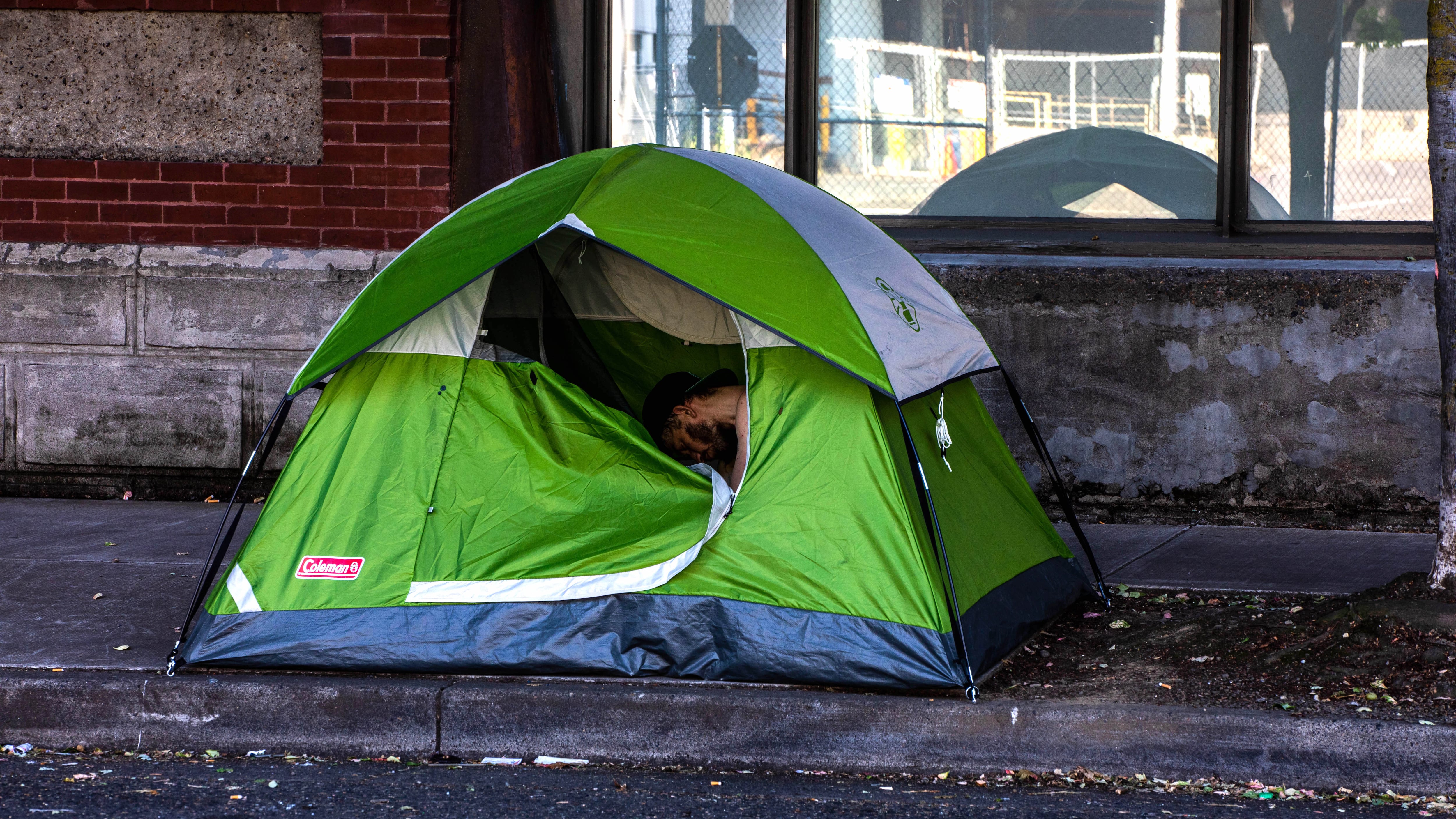Portland Mayor Ted Wheeler is working on a proposal to ban camping on city property from 8 am to 8 pm, in an effort to stop more permanent tent clusters and other structures from forming on city streets and in parks, according to people familiar with the mayor’s plans.
Unsheltered people would be prohibited from camping at any time, day or night, near schools, day care centers, and other shelter sites. Wheeler aims to bring the new rules to fellow members of the Portland City Council for a vote before the end of the month, a person familiar with the plan said.
Wheeler’s push comes as other cities in the region seek to comply with a law passed by the Oregon Legislature in 2021 that requires local laws about sitting, lying and sleeping on public property to be “objectively reasonable as to time, place and manner with regards to persons experiencing homelessness.”
The city of Beaverton, for example, is holding hearings on complying with the state law, which started as House Bill 3115 in the 2021 regular session. The law requires cities to comply by July 1. Beaverton is holding the first of two hearings on the matter this evening, according to a city website.
Beaverton’s proposed ordinance says that unsheltered people may camp between the hours of 8 pm and 8 am. “After 8 am, a person without alternative shelter must dismantle the campsite and remove all personal property from the campsite,” the ordinance says.
As for place, Beaverton’s proposed ordinance says that unsheltered people may not camp within 1,000 feet of a safe parking site, a shelter, or where homeless services are provided. Nor may they camp within 250 feet of a school or a child care center, or within 250 feet of freeway on- and off-ramps.
As for manner, Beaverton’s ordinance would prohibit tents and other structures that obstruct public rights of way and entrances to private property. Unsheltered people would be prohibited from starting fires or using gas heaters, and from leaving behind trash or feces. Nor would they be allowed to “terrace soil.”
Portland’s rules are expected to look much like Beaverton’s, the people familiar with the matter said.
HB 3115 was a priority for Gov. Tina Kotek when she was speaker of the House. Kotek wanted to make sure Oregon cities didn’t criminalize camping without offering alternatives for shelter.
Portland policymakers have struggled over the years with “outdoor solutions” for homeless people. Mayor Charlie Hales stirred controversy in February 2016, when he rolled out a six-month pilot project to permit camping on city sidewalks between 9 pm and 7 am (with six people per cluster).
Hales scaled back the plan that August, saying that camping remained illegal. He told park rangers and police officers to go easy on campers, though, if they weren’t causing problems.
Much of homeless policy in Western U.S. cities is guided by Martin v. Boise, a 2018 decision in the U.S. Court of Appeals for the 9th Circuit that prohibits local governments from enforcing anti-camping ordinances if they don’t have enough beds for their homeless residents.
Even so, Martin doesn’t prevent cities from enforcing restrictions on camping on public property.
The number of homeless camps in Portland exploded during the pandemic as the economy swooned and the Centers for Disease Control and Prevention ordered cities to leave the camps alone to curb the spread of COVID-19. Many of the camps have become sprawling complexes of nylon, metal and wood.
Wheeler’s move to ban daytime street camping comes as his office works to set up six sanctioned encampments for unsheltered Portlanders that offer basic hygiene services and case management. Wheeler aims to shelter up to 1,500 people in the sanctioned areas.
Cody Bowman, a spokesman for Wheeler, declined to comment on the new rules.
